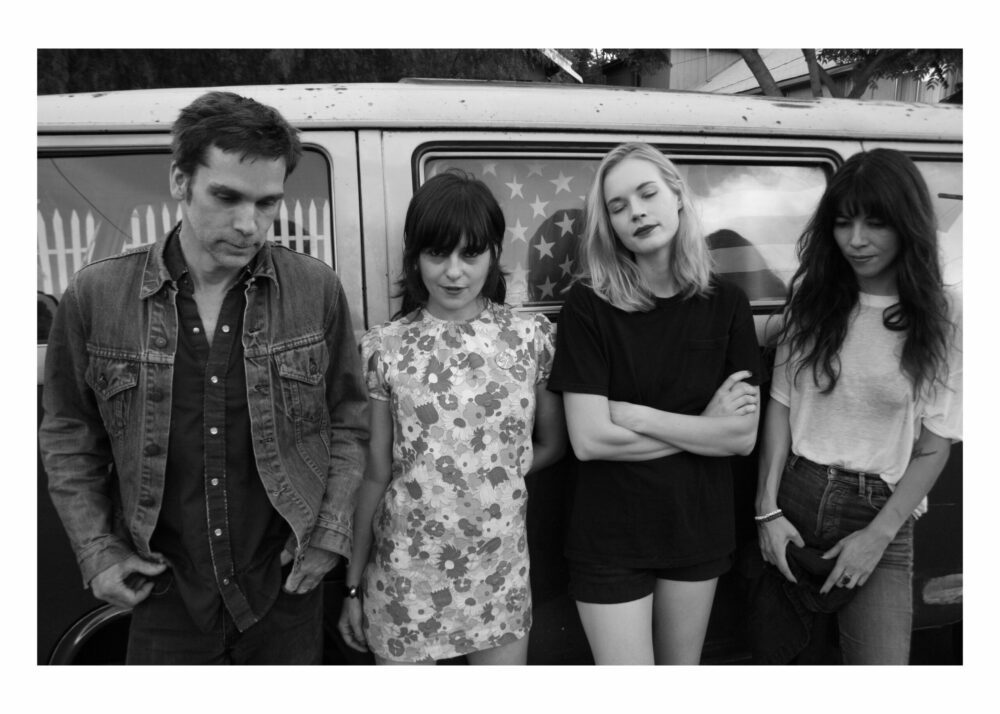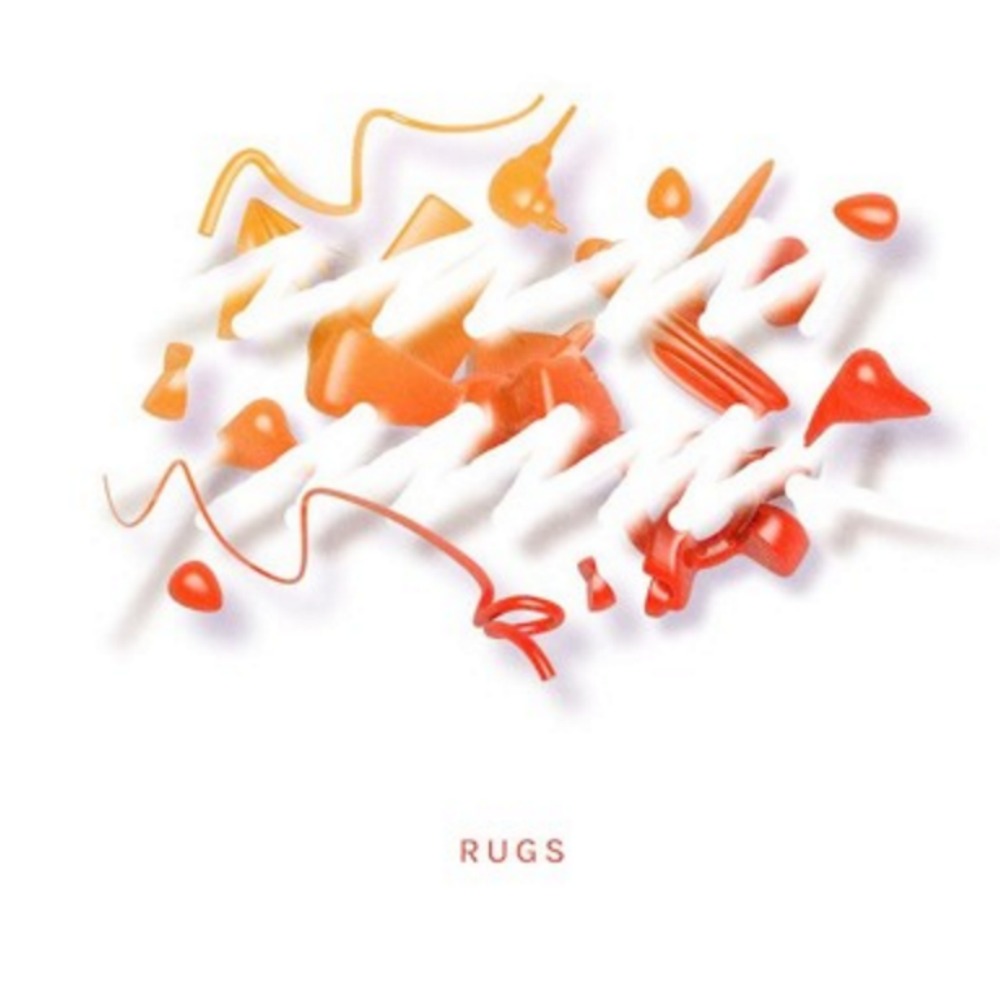

When Bonnie Bloomgarden arrived in Los Angeles seven years ago, she had one thing in mind: she came to get sober and start a new chapter in her life. Making music wasn’t part of that plan. Everything in her life was reactive, no motivation to think or be human. Told to bottle up her emotions as a teen, over-medicated and even institutionalized, she’d found ways to cope that were negatively affecting her life and well-being. “No one talked to me like I was a human. Everyone made me feel I was such a freak, so outside of reality,” she remembers. “No one ever said you’re supposed to feel emotions. If you feel emotions, there’s something wrong with you.” Stepping onto California soil, however, she knew she couldn’t leave music behind. “Once I was there I realized, I AM MUSIC. That’s what I do, I make songs,” she tells Audiofemme.
Bloomgarden didn’t have a plan, just jamming out with some friends like a grindhouse girl-gang. Eventually, she put the word out to find a guitarist and drummer; if she didn’t find a band, she was going to move back home. Luckily, she met former Hole drummer Patty Schemel and her brother Larry, who was working at Hollywood record store Amoeba Music at the time. Soon after, they added bassist Rachel Orosco to the lineup, calling themselves Death Valley Girls. “They have the best taste of everything in the world,” Bloomgarden says of her bandmates. “We just started playing for a year and made tiny goals and kept achieving them. Becoming human again.”
Their next goal was to tour, but they weren’t the type of band to beg to play or piggyback on a show bill, and it was to get difficult to book headlining shows with no recorded material. To that end, Death Valley Girls recorded their first record seven years ago, mainly because they wanted to play shows. After a two-day recording session, Street Venom was initially released in a limited cassette run. Fast forward to the present day: after a few member changes and a hectic tour schedule that’s included up to 200 shows a year, Suicide Squeeze Records is reissuing a deluxe edition of Street Venom on vinyl, a dream come true for the band. Larry Schemel feels like this release is different because it’s like sharing an old photo album with the fans. “We were still figuring out our song writing and sound,” he reveals. “We also thought it was a good time to focus on other projects, like finally releasing our first recordings on vinyl, since we haven’t been able to tour in these strange times. Suicide Squeeze help put together a really cool release – we were also able to include two songs from our first single that was also a super limited edition release. Now Street Venom has a proper place on the shelf with our other records.”
Bonnie Bloomgarden and Larry Schemel look back on those two days of recording, both characterizing it as mostly off-the-cuff. They had pieces of songs, but played everything live and totally improvised. Some songs were just intros, with no ending. Patty Schemel recorded her drums on the first take. It was a real rag-tag, yet magical experience that set the tone for what Death Valley Girls is today: chaotic, mystic garage rock allowing listeners to channel suppressed emotions through a headbanging session. Death Valley Girls created their own brand of rock ‘n’ roll catharsis, incongruous yet harmonic, a place in time where they exorcised their demons, while sounding like they play to please them.
On “Shadow” Bloomgarden sings, “Don’t know what his name is/Or what he’s doing here/Just stop following me/I just want to disappear,” describing some entity from her past following her like a dark, demonic silhouette. “Sanitarium Blues” revisits Bloomgarden’s troubled youth, a new video for the old classic directed by Wiktor Lekston (Cult Nug).
While recording Street Venom (and much of their catalogue to come), Death Valley Girls spilled it all on the page, by way of playing live. “We’ve always done it. We didn’t know it back then. Not knowing that it was normal for us, we still did it,” Bloomgarden marvels. Putting those “feelings that come unplanned” to tape gives every Death Valley Girls album a special zeal, but nowhere is that more true that Street Venom. “I love the sound of spontaneity and crazy energy. [Street Venom is] not a practiced recording. Is it rehearsed, or will it be the loopy, goofy moments that come together? Your records are to capture an exact live moment.”
Last year, Death Valley Girls came full circle with their latest LP, Under the Spell of Joy; Bonnie Bloomgarden and Larry Schemel remain at the band’s core, with help from bassist Nicole Smith and drummer Rikki Styxx, as well as guest-saxophone player Gabe Flores and guest keyboardists Gregg Foreman and Laura Kelsey, among others. Concerning itself with mystical principals, channeled through Death Valley Girls’ typical rock reckoning, the writing and recording process was, again, an almost subconscious effort. “Last record, we needed to say magic spells and chants out loud to manifest great things,” Bloomgarden says. “Everyone needs to be open and create spaces for themselves, and everyone [else].”
Its predecessor, 2018’s Darkness Rains, was more reactionary, symbolic of how the band was feeling about the state of the political reign of terror brought on by the 2016 election. But it also shed light on the surge of mental health crises, gender inequality, and trans issues were coming to the forefront, like an erupting volcano to the band. “Darkness Rains was about being angry and pissed,” Bloomgarden says. “We’re just people, and music is a religion, it’s prayer.”
Though the pandemic is far from over and Death Valley Girls are slowly returning to the stage, where they feel most comfortable, Bloomgarden points out that we all learned a little something about ourselves in lockdown that could have lasting effects as society re-emerges. “The thing I’ve noticed is that when everyone went inside, they all had an opportunity to see what their own energy is. Before COVID we were bumping into people’s energy, pulling other people, didn’t have a chance to realize our own energy,” she says. “I think everyone is going to realize they’re kind of psychic and an empath.”
Looking back to those recording sessions where the band first felt intimate, genuine, and in touch with their souls, the constant has remained to advocate awareness for people. The anger that inspired records like Street Venom and Darkness Rains has given way to a blueprint for how we can all challenge reality and societal norms to find catharsis – sometimes via the very act of rocking out. Death Valley Girls had to start somewhere, and for Bloomgarden, it had to begin with exorcism, a reaction to shoving her emotions aside for so long. “I want people to know that they should talk about [their feelings]. Street Venom is about not thinking and talking about it,” she says. “Our records became more about empowerment and how you be yourself.”
Follow Death Valley Girls on Instagram and Facebook for ongoing updates.




